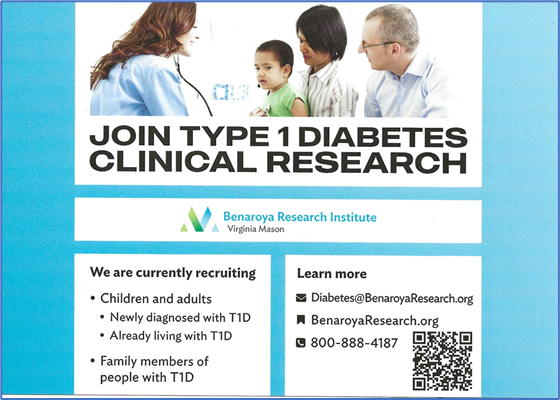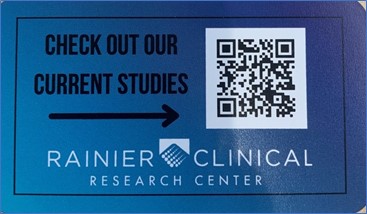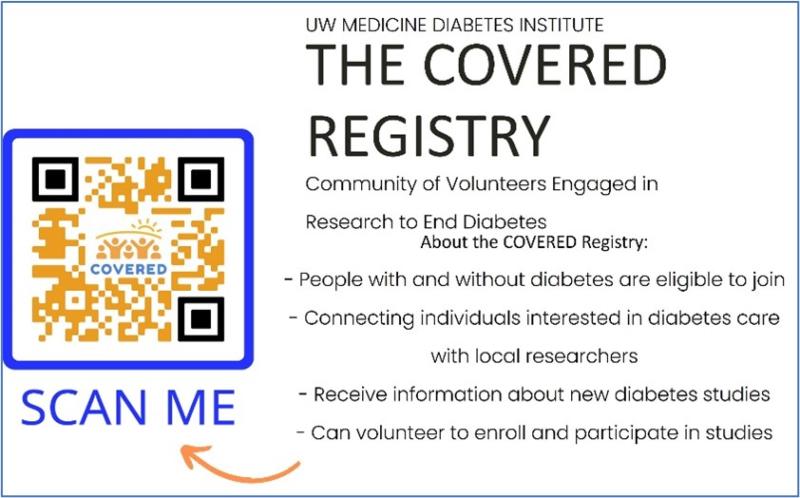Clinical Trials : Moving T1D Research Forward

Those of us in the T1D community in the great Pacific Northwest are lucky. It’s not too often you hear lucky and T1D in the same sentence.
However, those in the T1D community, the larger community around the whole country and even the world are lucky that some of the preeminent research facilities are here in the PNW. Some of the leading T1D research happens here in our own backyard, and we are able to take advantage of that research by volunteering to participate in their clinical trials. Here in the PNW we are home to Benaroya Research Institute, Rainier Clinical Research, University of Washington Diabetes Institute, Oregon Health & Science University (OHSU), and Rocky Mountain Clinical Research (Idaho).
What is a clinical trial?
A clinical trial is a research study involving human volunteers that tries to answer a specific health question. Clinical trials closely monitor people’s progress as they take part in the study of an investigational drug or device. Today, carefully conducted clinical trials are the safest and fastest way to find treatments that work.
Why are clinical trials important?
JDRF is proud that the number of trials we support has grown from a small handful ten years ago to over 70 today. This indicates our research strategy is paying off, with more potential drugs and devices than ever being tested. However, up to 80% of the trials are delayed due to slow patient recruitment, resulting in delays getting answers, increased costs and disincentive to sponsors to test potential therapies. Bottom line: Slow patient recruitment is slowing our progress toward introducing new therapies to people with diabetes and our mission to find cures, treatments and prevention tools for T1D.
You might ask why you would want to participate in a trial? There are several good reasons that can benefit you and also the larger T1D community. For instance, anyone reading this blog has spent hours helping to raise money for JDRF to fund T1D research. By volunteering, you can maximize the impact of the funds you raise.
Another great reason to volunteer is to be at the cutting edge of science and learning about where we are headed. An additional benefit is making the personal connections to the folks performing research and your fellow participants.
Where can I find clinical trials?
JDRF has an easy-to-use tool called the Clinical Trials Connection, which asks users simple questions—about where they live, the distance they can travel and other characteristics—to match them with trials for which they may be eligible. Currently, there are more than 300 clinical trials for people living with T1D and T1D-related complications underway.
In addition, you can search on clinicaltrials.gov, a repository of more than 300,000 trials in at least 200 countries addressing a vast array of diseases.
We would love to hear any feedback on why you have already participated in a clinical trial, or why you may be hesitant to participate. I’m eager to hear from you, and hopefully answer and questions you might have. I can be reached at: jrestis@yahoo.com
About the Author : Jude Restis has been a JDRF volunteer for many years in many roles. He is currently a cycling coach for the Ride to Cure Diabetes program in the Pacific Northwest. He serves as a Clinical Trials Educator and also a Research Information Volunteer. Jude serves on the JDRF Speakers Bureau and has served on the Research Committee for the artificial pancreas project. He currently serves on the JDRF Greater NW Board of Directors. This is Jude’s Golden anniversary of living with T1D, having been diagnosed 50 years ago way back in 1972. Jude has helped in many clinical trials and knows firsthand of the many benefits of clinical trial participation.
Here are some QR codes you can scan to learn more about current research available at Benaroya, RCRC and the UW:


